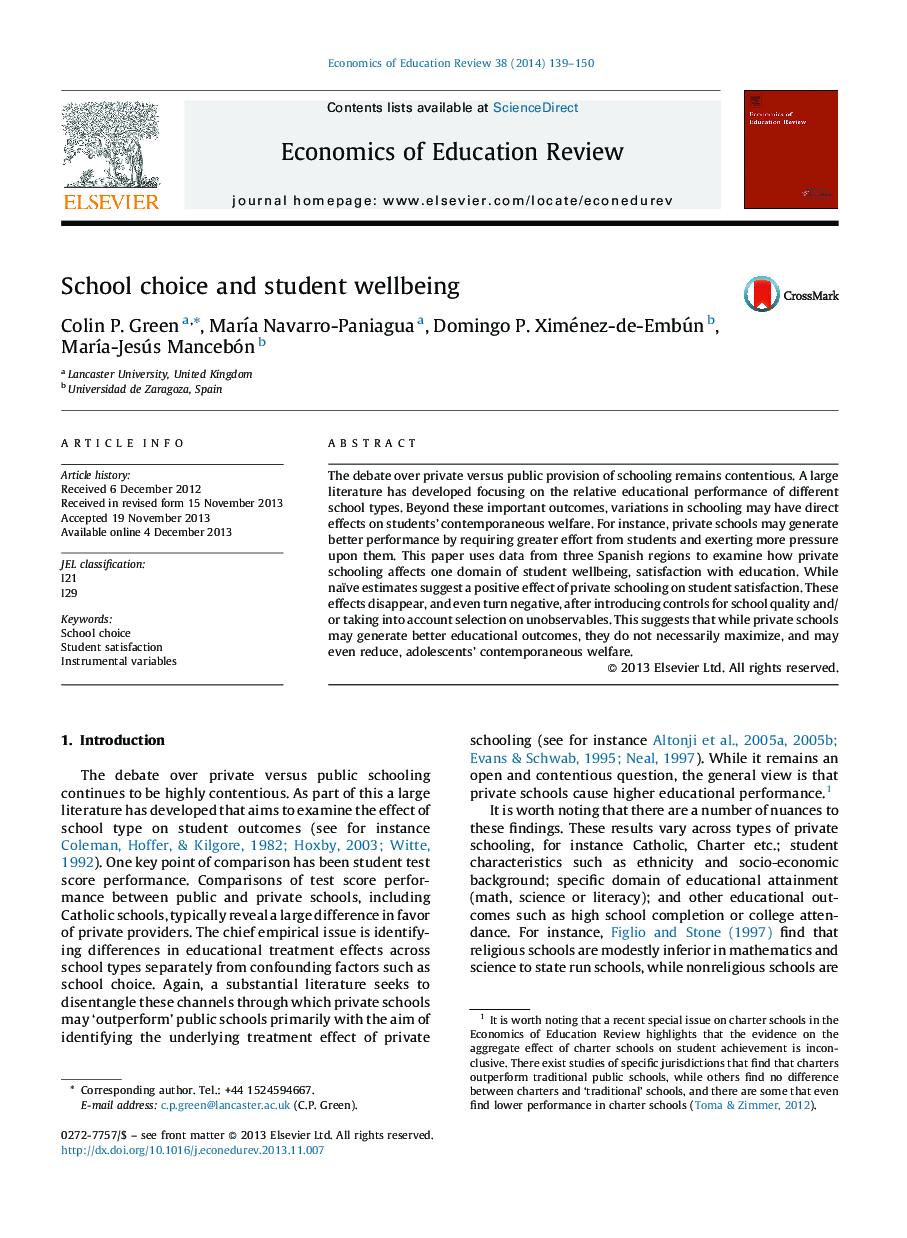| Article ID | Journal | Published Year | Pages | File Type |
|---|---|---|---|---|
| 354380 | Economics of Education Review | 2014 | 12 Pages |
•Add to the debate regarding private versus public schooling by examining the effect of school choice on student satisfaction.•Address endogeneity of school choice via IV based on geographic availability.•Naïve results suggest that private school students are more satisfied.•The positive sign disappears and reverses once school quality and non-random school choice are addressed.•Suggests that superior private school performance may be at the cost of student wellbeing in the short-term.
The debate over private versus public provision of schooling remains contentious. A large literature has developed focusing on the relative educational performance of different school types. Beyond these important outcomes, variations in schooling may have direct effects on students’ contemporaneous welfare. For instance, private schools may generate better performance by requiring greater effort from students and exerting more pressure upon them. This paper uses data from three Spanish regions to examine how private schooling affects one domain of student wellbeing, satisfaction with education. While naïve estimates suggest a positive effect of private schooling on student satisfaction. These effects disappear, and even turn negative, after introducing controls for school quality and/or taking into account selection on unobservables. This suggests that while private schools may generate better educational outcomes, they do not necessarily maximize, and may even reduce, adolescents’ contemporaneous welfare.
